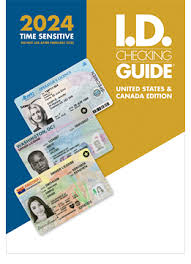punishment for fake id in alabama
Punishment for Fake ID in Alabama: Consequences and Legal Ramifications
Introduction

Using a fake ID in Alabama might seem like a harmless prank or a means to gain entry to certain age-restricted venues or activities. However, the state of Alabama takes the use of fraudulent identification very seriously, and those caught with a fake ID can face significant legal consequences. This article will explore the various punishments associated with using a fake ID in Alabama, the potential criminal charges, and the long-term implications of such an offense.
Understanding the Law
In Alabama, the use of a fake ID is primarily governed by two sections of the state law: Alabama Code § 13A-9-6 and Alabama Code § 28-3A-25. The first statute addresses the broader crime of possessing a fraudulent ID, while the latter specifically deals with the use of a fake ID to purchase alcohol. Both statutes categorize the use of a fake ID as a criminal offense, with varying degrees of severity depending on the circumstances.
Possession of a Fraudulent ID
Under Alabama Code § 13A-9-6, it is illegal to possess any form of fake identification. This can include, but is not limited to, driver’s licenses, passports, or other government-issued IDs. The statute makes it clear that intent to use the fake ID is not a requirement for the offense; mere possession is sufficient to be charged.
A person found guilty of possessing a fraudulent ID can be charged with a Class C felony. This classification means that the individual could face up to 10 years in prison, along with substantial fines and court costs. Additionally, a felony conviction can have far-reaching consequences beyond the immediate punishment, including difficulties in securing employment, housing, and even education opportunities.
Use of a Fake ID to Purchase Alcohol
The use of a fake ID to purchase alcohol falls under Alabama Code § 28-3A-25. This specific offense is treated slightly differently from the broader crime of possessing a fake ID. When a person uses a fake ID to buy alcohol, they are typically charged with a misdemeanor rather than a felony.
While a misdemeanor is less severe than a felony, the penalties can still be quite harsh. A conviction can result in fines up to $500, up to 90 days in jail, or both. Additionally, the individual’s driver’s license may be suspended for up to six months, and the offense will be recorded on their criminal record, potentially impacting future opportunities.
Juvenile Offenders
For individuals under the age of 18, the consequences of using a fake ID can differ slightly. Juvenile offenders are generally handled within the juvenile justice system, which focuses more on rehabilitation than punishment. However, this does not mean that the consequences are trivial. Juvenile offenders can still face fines, community service, and mandatory educational programs. In some cases, they might also be placed on probation or in juvenile detention facilities.
Moreover, a juvenile record, while often sealed, can still have negative consequences, especially if the individual reoffends or if the case is particularly severe. For college students, a fake ID offense can also lead to disciplinary actions from their educational institution, including suspension or expulsion.
Defenses and Legal Representation
If someone is charged with possessing or using a fake ID in Alabama, it is crucial to seek legal representation immediately. A skilled defense attorney can evaluate the circumstances of the case, potentially identify flaws in the prosecution's evidence, and negotiate for lesser charges or alternative sentencing options.
Common defenses might include proving a lack of intent to defraud or demonstrating that the ID in question was not actually fake. In some cases, attorneys can work to have the charges reduced to a lesser offense, such as a violation instead of a misdemeanor or felony, which can significantly lessen the potential penalties.
Long-Term Consequences
The repercussions of being caught with a fake ID extend beyond the immediate legal penalties. A criminal record can hinder job prospects, particularly in industries that require a high level of trust, such as finance, law enforcement, or education. Furthermore, some colleges and universities might deny admission or revoke scholarships for students with a criminal background.
Additionally, a criminal conviction can affect an individual’s ability to obtain certain professional licenses, rent an apartment, or even travel internationally. It is not uncommon for countries to deny entry to individuals with certain criminal records, which could limit opportunities for work or leisure abroad.
Conclusion
Using a fake ID in Alabama is not a matter to be taken lightly. The state imposes strict penalties on those caught possessing or using fraudulent identification, ranging from misdemeanors to felonies. These legal consequences can have long-lasting effects on an individual’s life, impacting their education, career, and personal relationships. If charged with a fake ID offense, it is essential to seek legal counsel to navigate the complexities of the legal system and mitigate the potential damages.
 Fake Permanent Resident Card
Fake Permanent Resident Card
 Fake US Permanent Resident
Fake US Permanent Resident
 Fake US Green Card
Fake US Green Card
 Replace Social Security Card
Replace Social Security Card